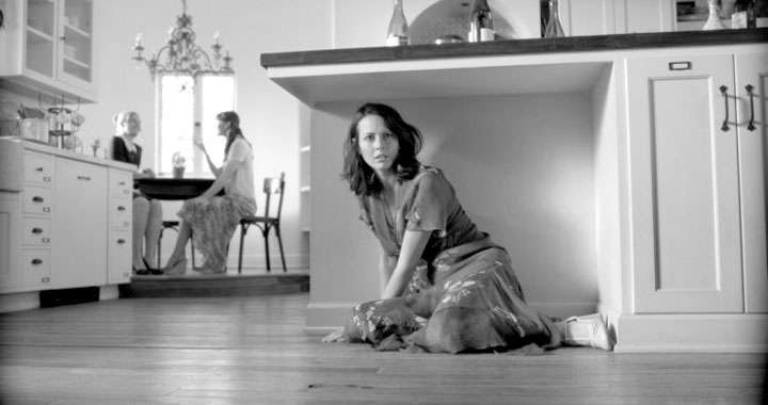Willy the Shake

Joss Whedon introduces fanboys to the Bard
During a public trailer for Much Ado About Nothing, some guy in the theater let out an exasperated yawn: "Oh, Boy!" Having already seen the film, I appreciated his foresight. Joss Whedon's modern-day, black and white version of Shakespeare's comedy means to be delightful but falls way short.
The romance of Beatrice and Benedick - two verbal wits whose tongues out-race their hearts - represent an ideal of courtship that is no longer in vogue.
MTV's Girl Code and Guy Code are post-feminist programs meant to counteract the feints that genders present to each other; such battle-of-the-sexes stratagems are what Shakespeare brilliantly exposed. The walls between the sexes (men, women and the homosocial) reveal their indoctrination as well as their temperament. This is what keeps Much Ado current, fun, suspenseful. Whedon was wise to go for it; recognizing its truths about human need and ambition routinely travestied in rom-com garbage by Nora Ephron and even such films as Kevin Smith's Chasing Amy. But instead of provoking cheers, his movie at best inspires an exasperated "Oh, Boy!"
It's not that we're hopelessly far from Shakespeare's language (Whedon's adaptation leaves out some of my favorite lines, short-cutting the poetry) but that the context he manufactures is damned unpoetic. In A.J. Antoon's 1973 production of Much Ado About Nothing for Joseph Papp's Public Theater, at the height of the sexual revolution, the Edwardian era provided a sumptuously detached comic atmosphere; Sam Waterston and Kathleen Widdoes were well-spoken, memorable romantics. Whedon's crew are dully modern. Amy Acker as Beatrice and Alexis Denisof as Benedict are both willowy types; not so much intellectual as L.A. hipsters. They don't evoke recognizable modern Hollywood desperation but merely seem matched in their unpleasantness. The opening spare music score recalls Joceylyn Pook's single piano note for Eyes Wide Shut but Whedon seems to have accepted Kubrick's soured view of romance along with Shakespeare's fascination.
The problem here isn't as grievous as the 1992 version with its sun-tanned Brits and unctuous lovers (Kenneth Branagh's and Emma Thompson). Whedon goes for a re-definition of "chic" and "hip" through modern dress and black and white gloss yet he cannot direct tone. The arch language doesn't so much convey a "merry war" between sexually-attracted wits, just oddity for its own sake. No use pretending that these actors achieve the beauty that Elizabeth Taylor and Richard Burton did in Franco Zeffirelli's more boisterous The Taming of the Shrew. Whedon gets nowhere close to the romantic intensity of Leonard Whiting and Olivia Hussey's teenage hearthrobs in Franco Zeffirelli's Romeo and Juliet. Those pop Shakespeares were undeniable pop triumphs.
But Whedon cannot enlighten his coarsened Marvel's The Avengers and Buffy the Vampire Slayer audience when his actors' voices lack lyricism. Only their pratfall get laughs: The scenes that work are Benedick doing push-ups while trying to entice and Beatrice hiding beneath a kitchen counter to conceal her undeniable attraction. None of this is nonsensical like Baz Luhrmann's 1995 Romeo + Juliet which failed to ignite interest in the Bard. Yet Whedon strives to make fan boys recognize that their cultural heritage is larger than sci-fi by showing them what art is and how human desires are articulated face to face. One cannot help but encourage Whedon, even when the effort is unsatisfactory. But will fanboys heed his lesson?
Follow Armond White on Twitter at 3xchair